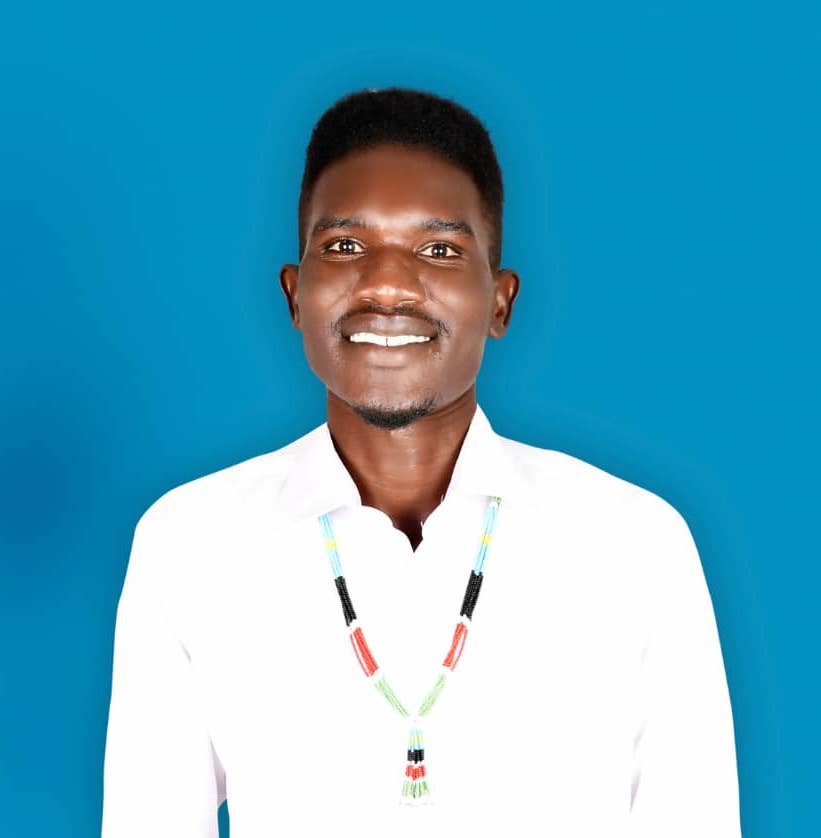The Power of Art | Juba, South Sudan
Gail Prensky, creator, executive producer and director of The Jüdische Kulturbund Project, dedicated to exploring issues of oppression and response through music and art, shares her interview with young South Sudan artist Akot Deng Agoth.
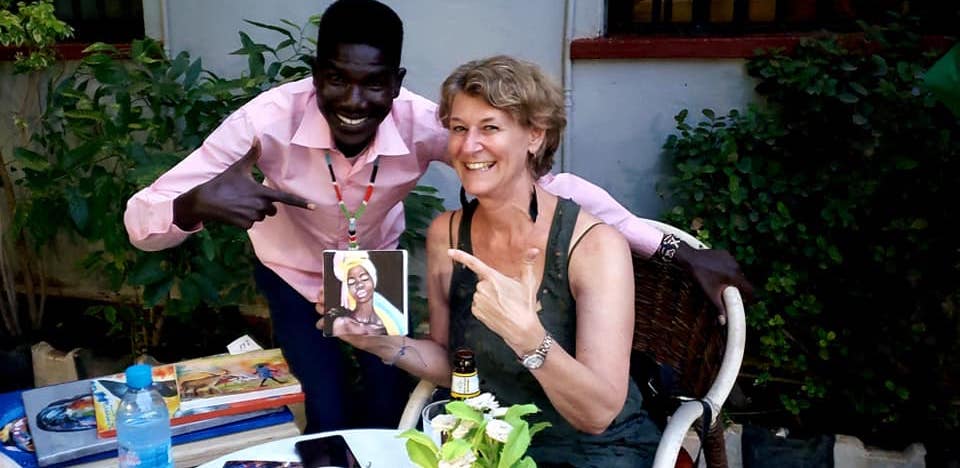
South Sudan, which gained independence from Sudan in 2011, has been torn apart by ethnic conflicts and civil wars for many years since. Very recently, on 22 February 2020, a national unity government was formed, opening the door to a peaceful resolution of the conflicts and hopefully to the end of the violence.
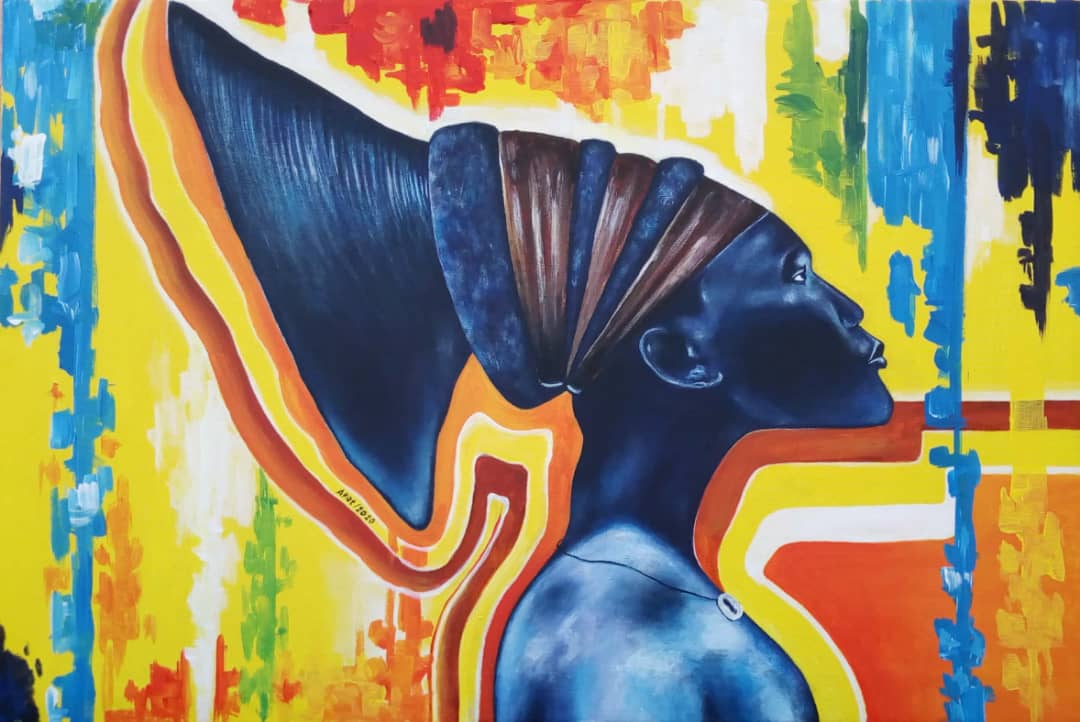
GP: You live in South Sudan, the youngest nation in the world. What would you like to tell people who know little or nothing about South Sudan, specifically about its art and culture?
ADA: Well apart from that our people are tall and they have a good figure... and I think our ladies are really good as fashion models... South Sudan has a very unique culture and diversity of its people: sixty-four tribes with different cultures, dress and marks.
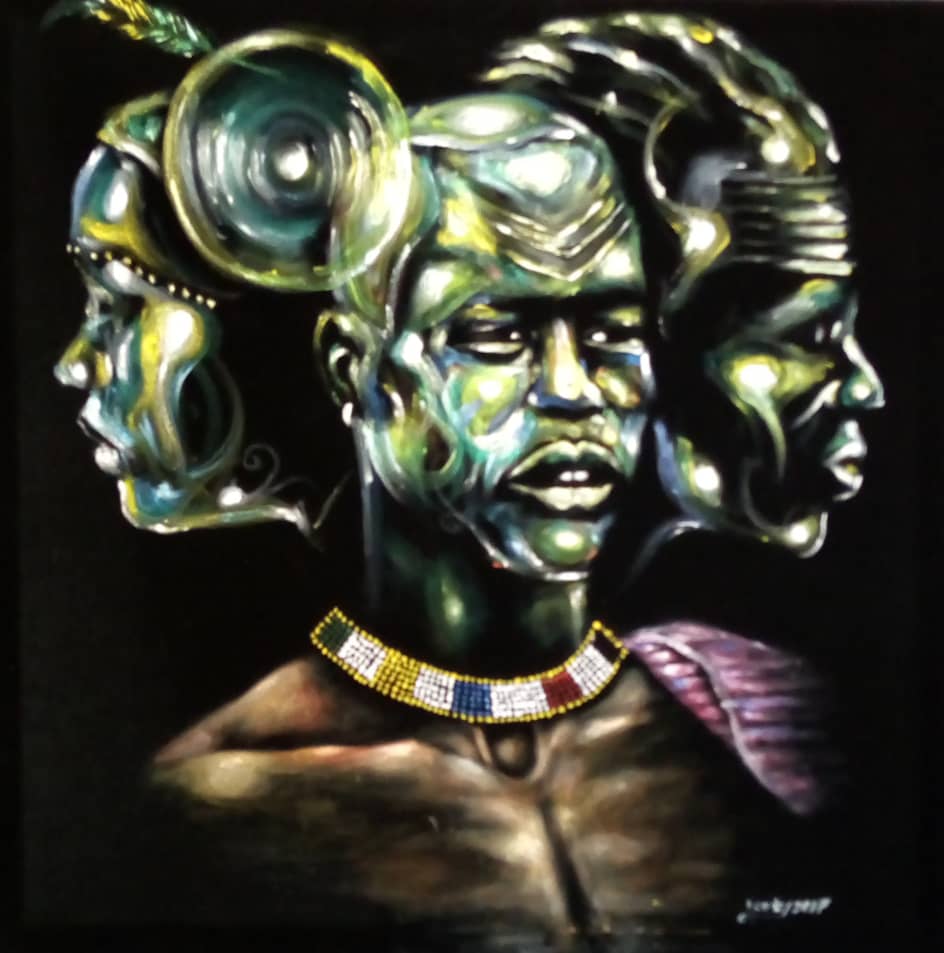
Currently the arts in South Sudan are moving in the right direction, mostly in last ten years. [I am] happy that others are presenting us [South Sudan artists] internationally, which is something very good.
GP: What is the power of art and artists?
ADA: Artists have a very big power that is reflected in the art itself. It is also powerful in educating people and giving awareness. This is what we are doing currently during this pandemic. Other works showcase issues what we have worked on before, for example gender-base violence and child abuse ....and so on. So we artists have tools that can make a change.
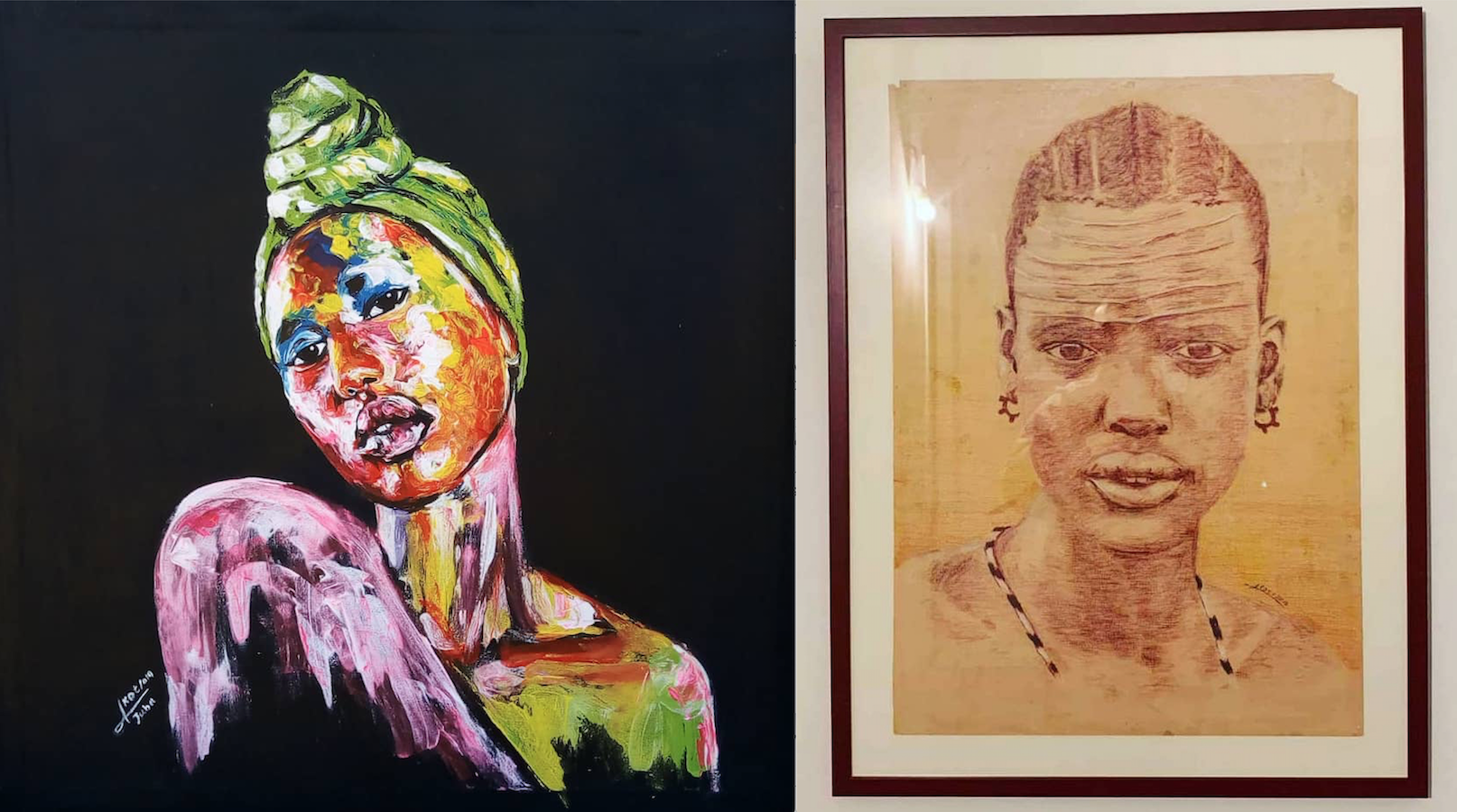
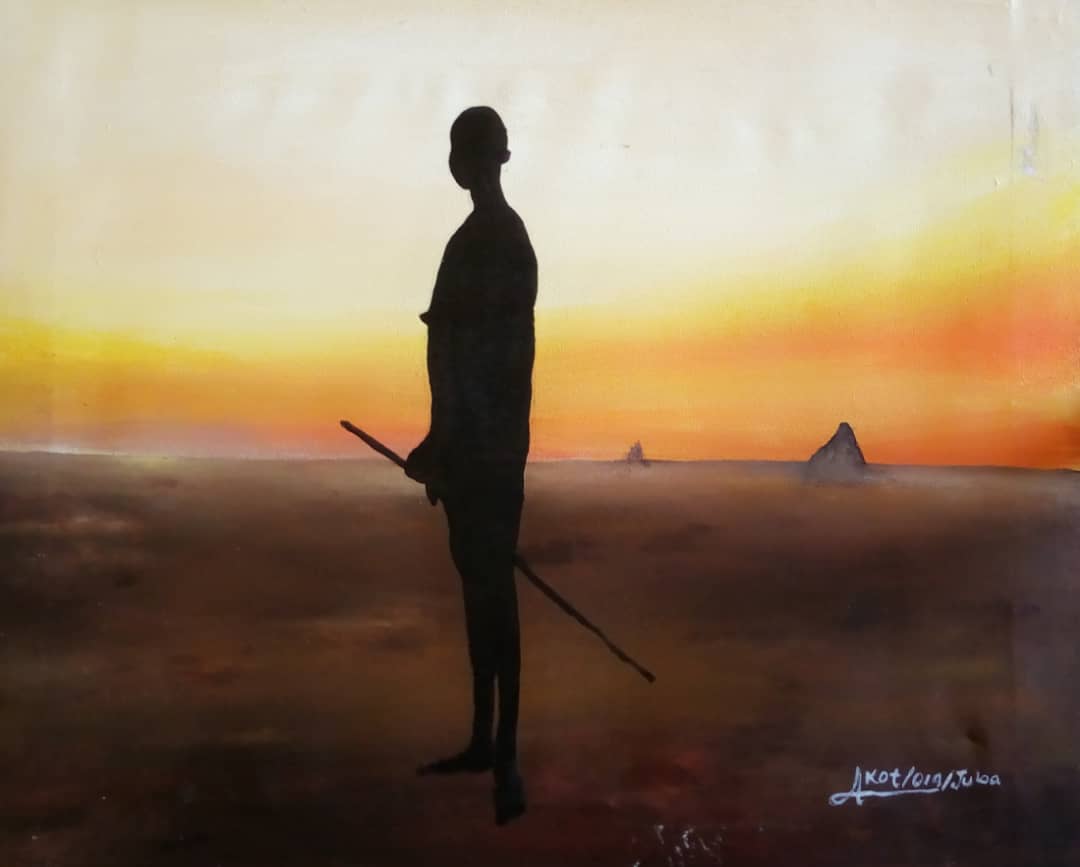
GP: How do you think you and your artwork affects other people?
ADA: It is good to see your impact in your own community, in a positive way. Yes, I am doing my part, hoping that I can create something good for my country and what we are after: peace and unity.
GP: What inspires/motivates you in creating art?
ADA: Sometimes [I get inspiration] from my surrounding environment. Also my imagination, that I translate to a visual work that can be seen by others.
GP: What are your favorite art medium/media and why?
ADA: I love oil paint because it can last for a long time, like in the famous paintings of the past. I really enjoy oil paint, but currently I am dealing mostly with acrylic paints because they are more available than the oil paints.
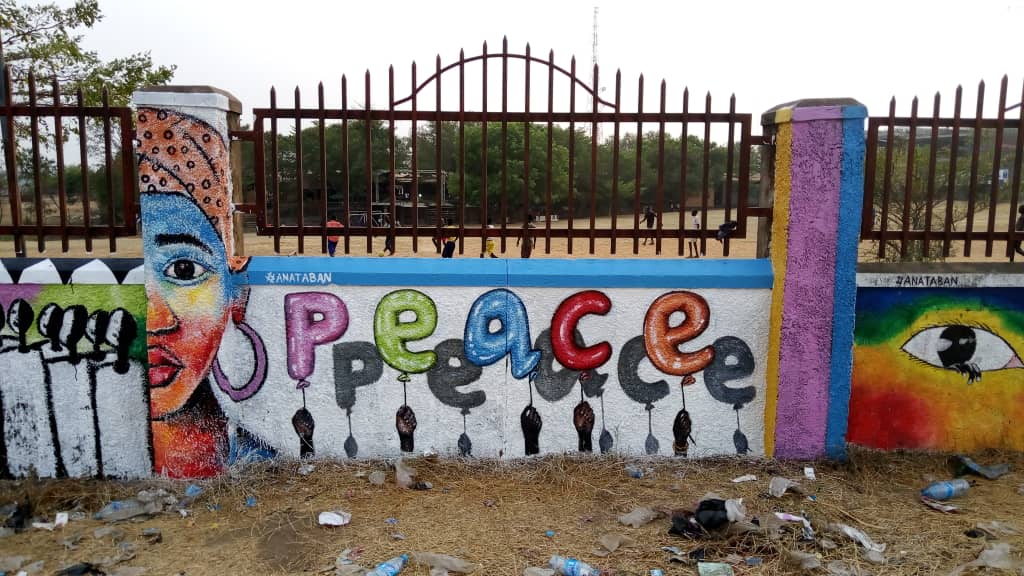
GP: And what about your artwork that depicts peace and unity for South Sudan?
ADA: Well, my work concentrates on things that can help to bring us to together as one--to the peace that is most wanted right now in South Sudan.
GP: During the pandemic, there have been efforts to paint murals around the country.
Who are the artists painting them and how would you describe their impact?
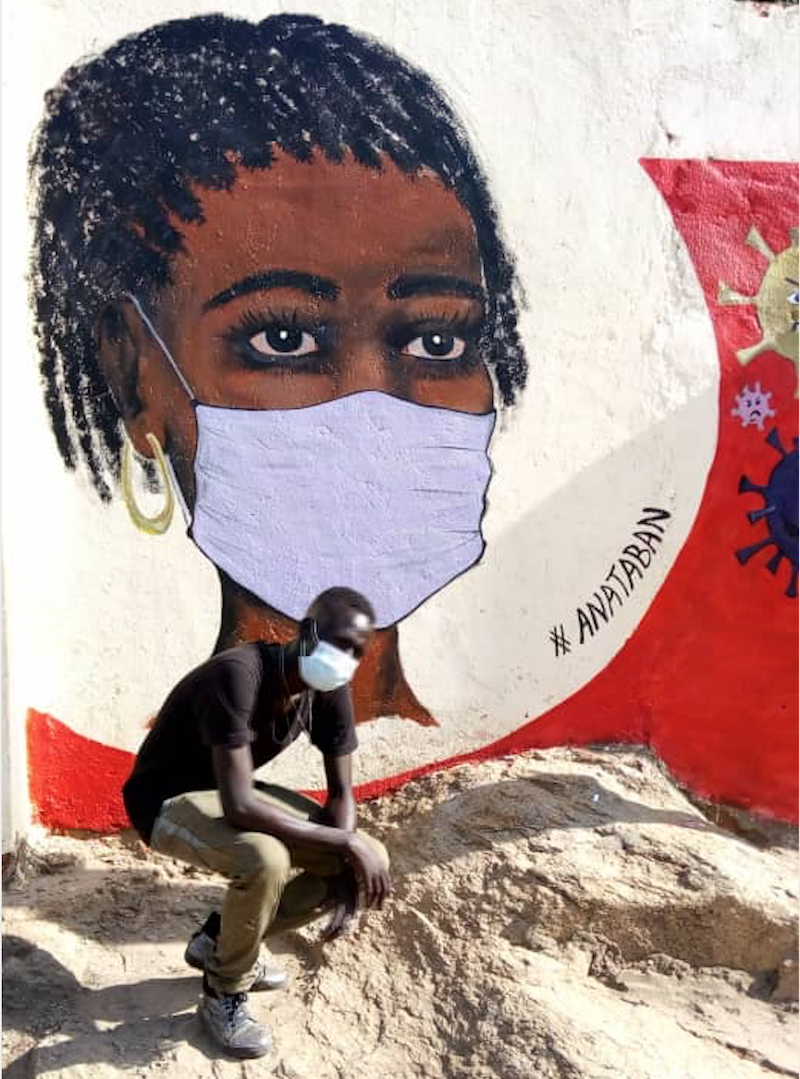
ADA: Well, I am happy to be one of this group. Actually the artists are from the umbrella of Visual Art Association in South Sudan (VAA). Works are made by many artist including #Anataban and others initiatives like the Fight Against Coronavirus initiative. The aim is to give the right information to the public and it is really, really helping.
GP: You are a member of ANATABAN. Can you tell me about them and their artwork?
ADA: ANATABAN is a youth initiative [comprised of artists, musicians, and activists]. Their main aim is to promote and initiate peace among the youth themselves, by creating a peaceful environment for all.
GP: Are you planning an exhibition of your work that has a particular theme?
ADA: Yes, I am now planning to have works done on the theme: Life Should Go On ...

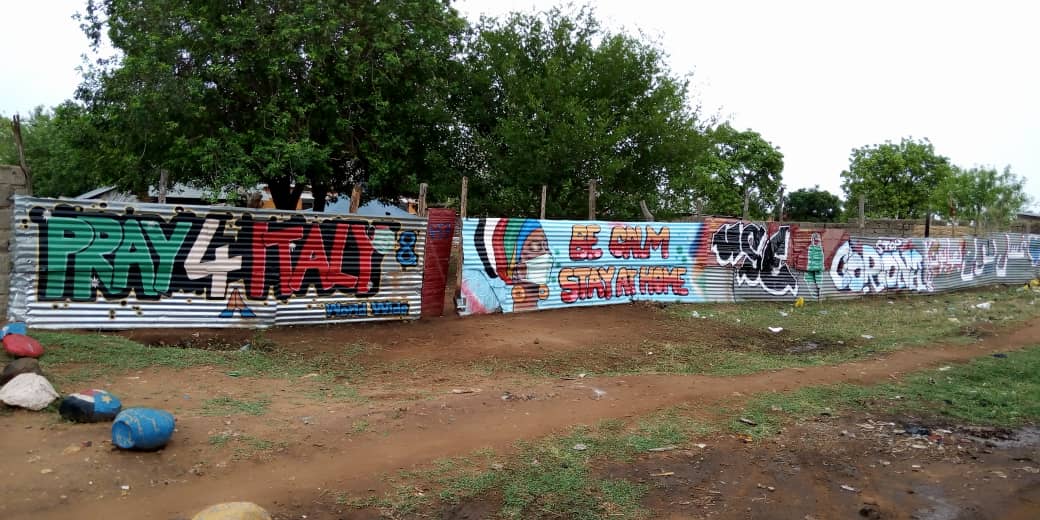
GP: Anything else you would like people to know or you would like to share?
ADA: Just that I have really learned a lot in this pandemic. That we are united to overcome anything that comes our way.
GP: You are involved with The Jüdische Kulturbund Project that explores issues of oppression and response through music and art. How does your art express your feelings/concerns about issues of oppression?
ADA: Art and music responses are amazing all across the world. I have been involved in creating beautiful murals and experienced amazing performances by the musicians. I think artists have created very powerful ways of awareness, especially here in South Sudan where the majority of people can't read and write.
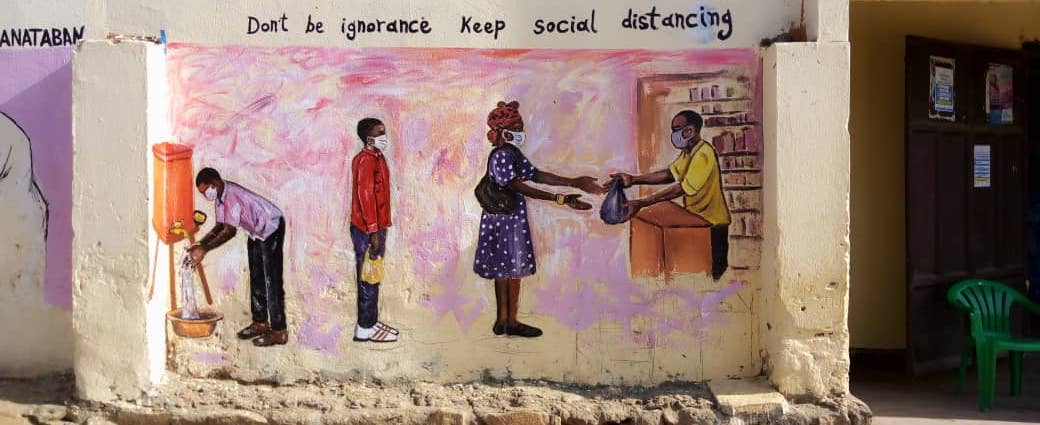
Photo credits — All photos are courtesy of Akot Deng Agoth
ABOUT THE ARTIST
Born in 1992 in Alobjed, Sudan, Akot Deng Agoth graduated from the college of the Arts, Music and Drama, Department of Fine Arts at the University of Juba in 2017. He is a member of ANATABAN and the Hope Society in South Sudan. Akot’s talent was
identified at an early age when he began drawing people and animals.
He fulfilled his dream of becoming a professional artist through his studies in fine arts.
His work, characterized by realistic, semi-realistic, abstract and mixed-media imagery
has been included in numerous local, regional and international exhibitions.
